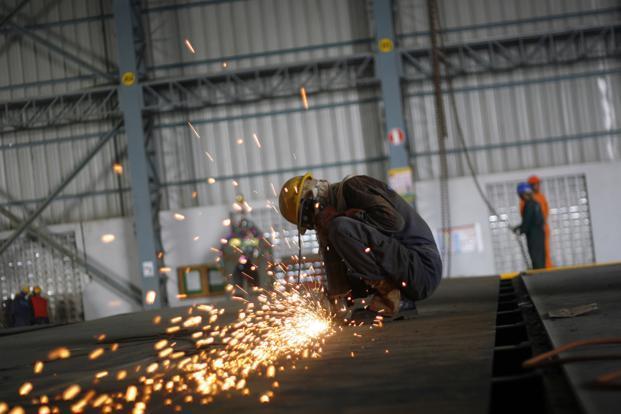September IIP Contracts by 4.3% - the Steepest in 8 Years

Representational image.
New Delhi: Darker clouds have started gathering on the economic horizon even as the country still debates the Mandir-Masjid verdict. Data released by the government on Monday showed September industrial output contracted the most in the past eight years (since October 2011) -- by 4.3% against September last year and 1.1% against August 2019.
Sectorally, capital goods contracted the steepest at -20.7%, followed by consumer durables at -9.9%, mining was at -8.5%, manufacturing at -3.9% and the electricity sector -2.6%, according to official data on the Index of Industrial Production (IIP) released on Monday.
Industry-wise, 17 out of 23 industry groups in the manufacturing showed negative growth during September, which is part of the festival season when the economy is supposed to be looking up. Manufacturing of motor vehicles, trailers and semi-trailers showing the highest negative growth of -24.8% followed by -23.6% the furniture segment and – 22% in fabricated metal products, except machinery and equipment.
The industry group ‘wood and products of wood and cork, except furniture; manufacture of articles of straw and plaiting materials’ showed shown the highest positive growth of 15.5% followed by 9.2% in manufacture of basic metals.
The IIP data comes at a time when there are already serious apprehensions that the slowing Indian economy is heading towards recession after gross domestic product (GDP) growth hitting a six-year low of 5% in the first quarter of this financial year.
Item-wise, the groups that saw the negative growth plunge by half were ‘bars and rods of alloy and stainless steel’ at -56.3%, printing machinery at -53%, commercial vehicles at -46.3%, among others.
The dismal IIP data follows a string of bad news on the economic front, indicating mismanagement of the economy by the Narendra Modi government. Just last week, global rating agency, Moody’s downgraded India’s growth outlook from ‘stable’ to ‘negative’ citing “government and policy ineffectiveness in addressing economic weakness, which in turn, led to an increase in debt burden from already high levels for its action". The Finance Ministry, however, had rebutted this view.
In August, the Reserve Bank of India too reduced its GDP growth to 6.9%, and then followed it with another cut in October, this time reducing the projected growth for 2019-20 to 6.1%, citing various high-frequency indicators, ranging from a slow domestic demand to industrial outlook and global slowdown.
Get the latest reports & analysis with people's perspective on Protests, movements & deep analytical videos, discussions of the current affairs in your Telegram app. Subscribe to NewsClick's Telegram channel & get Real-Time updates on stories, as they get published on our website.
























